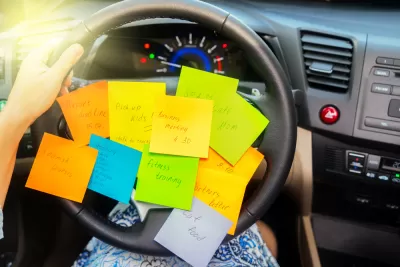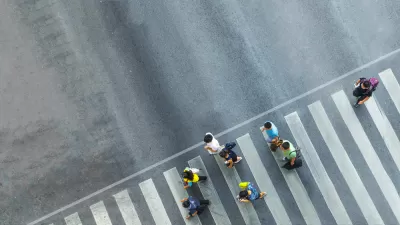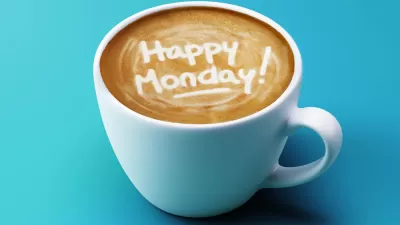There are few sites as essential for urbanists as CityLab. Here's what happened when I tried to be a little more inessential.

Day 1: I deleted CityLab from my bookmarks and from my Twitter feed. I also took the precaution or removing all CityLab writers from Twitter feed. Now I wait. And watch.
Day 2: CityLab stories get a lot of retweets—more than I realized. I am considering also quitting Twitter, to maintain the scientific integrity of this experiment.
Day 3: I missed the bus this morning. It's probably a coincidence.
Day 4: I took the Purple Line to Koreatown when I meant to take the Red Line to Hollywood today. It's probably a coincidence.
Day 5: Bike got a flat today. I'm starting to wonder if it's a coincidence.
Day 7: With a week of the experiment done, I can report that I've used the time in my day normally reserved for CityLab, CityLab tweets, and CityLab instagrams for some badly needed "me time." I've been cooking healthy meals and even allowing myself the indulgence of petting passing dogs instead of just rushing past to get back to my computer. I've lost five pounds and I called my mother two more times than I usually do. Also, I started playing the Sim City app for my iPad.
Day 8: Rent got raised today. Maybe it's not a coincidence.
Day 10: Got a parking ticket today. It's definitely not a coincidence.
Day 12: A new Whole Foods opened in the neighborhood. Finally, some good news.
Day 14: I have begun to wake up to the financial consequences of living in the city, two weeks into the experiment. A series of events outside of my control have unexpectedly cut into my budget. I will have to cut back on the amount of quinoa I have been consuming as part of my new healthy diet.
Day 15: The Sim City app starts out free, but they're not actually free. I felt like I was actually learning something at first, but now I think I need something new.
Day 17: Noticing a lack of intellectual stimulation in my life, I found a new website to read. It's called New Geography.
Day 19: Went to a neighborhood council hearing today to protest the construction of a mixed-use development with a Target on the ground floor and 100 units of affordable above. The greedy developers had the gall to ask for a variance on parking requirements and height limits. It feels good to stand up for neighborhood character in a meaningful way.
Day 21: I have decided to move to the suburbs, where I will spend much of my new, non-CityLab-devoted time to coaching soccer and raising a family. The writers on New Geography assure me this would have happened eventually whether I stopped reading CityLab or not. I don't even remember a time when I read CityLab every day.
FULL STORY: April Fool's Day

Maui's Vacation Rental Debate Turns Ugly
Verbal attacks, misinformation campaigns and fistfights plague a high-stakes debate to convert thousands of vacation rentals into long-term housing.

Planetizen Federal Action Tracker
A weekly monitor of how Trump’s orders and actions are impacting planners and planning in America.

In Urban Planning, AI Prompting Could be the New Design Thinking
Creativity has long been key to great urban design. What if we see AI as our new creative partner?

King County Supportive Housing Program Offers Hope for Unhoused Residents
The county is taking a ‘Housing First’ approach that prioritizes getting people into housing, then offering wraparound supportive services.

Researchers Use AI to Get Clearer Picture of US Housing
Analysts are using artificial intelligence to supercharge their research by allowing them to comb through data faster. Though these AI tools can be error prone, they save time and housing researchers are optimistic about the future.

Making Shared Micromobility More Inclusive
Cities and shared mobility system operators can do more to include people with disabilities in planning and operations, per a new report.
Urban Design for Planners 1: Software Tools
This six-course series explores essential urban design concepts using open source software and equips planners with the tools they need to participate fully in the urban design process.
Planning for Universal Design
Learn the tools for implementing Universal Design in planning regulations.
planning NEXT
Appalachian Highlands Housing Partners
Mpact (founded as Rail~Volution)
City of Camden Redevelopment Agency
City of Astoria
City of Portland
City of Laramie





























